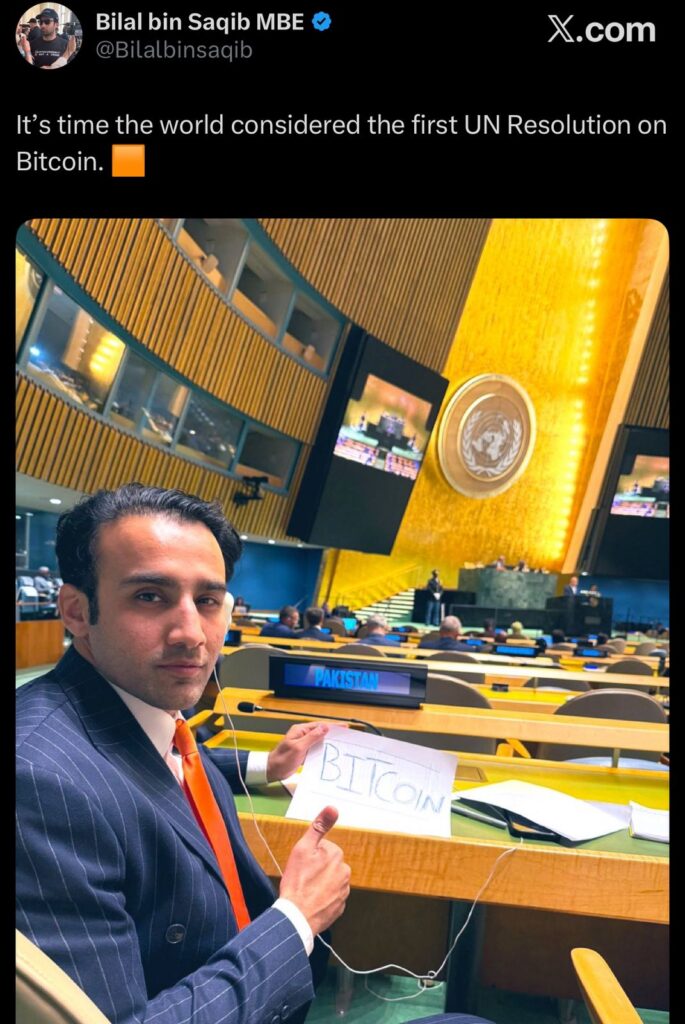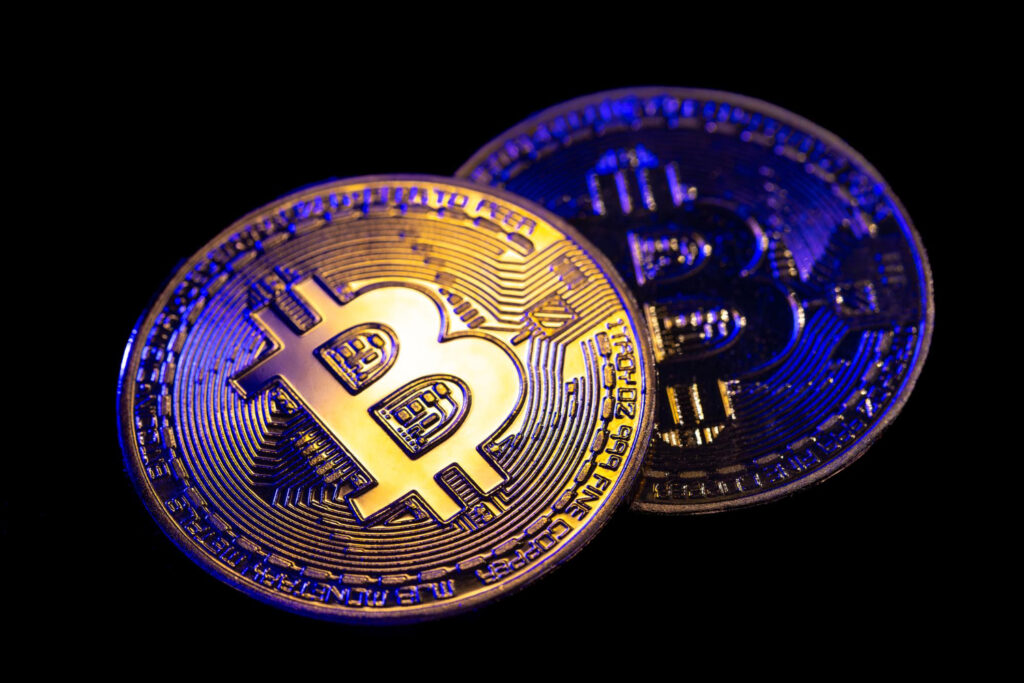When Pakistan’s Minister of State for Crypto and Blockchain, Bilal Bin Saqib, spoke at the sidelines of the 80th United Nations General Assembly in New York, it was not a symbolic intervention. It was a deliberate attempt to place crypto and digital assets at the heart of the global development debate. At two high-level events, one on Social Business, Youth and Technology, and another on AI Capacity Building co-hosted with Saudi Arabia, Kenya, and ICAIRE under the UN Office for Digital and Emerging Technologies, Bilal made a point that the developed world often overlooks. For countries like Pakistan, crypto is not about speculation, it is about survival.

He pointed to the reality on the ground. Millions of Pakistanis use digital tools to receive remittances faster and cheaper, fund small businesses, and connect to the global economy. This adoption is not being driven by hype cycles but by necessity. Families want quicker payments, entrepreneurs want micro-capital, and communities want solutions when traditional systems fail them. The question Bilal raised in New York is how to channel this bottom-up energy into transparent, accountable, and socially productive systems that can scale.
Which brings me to my next question: Is Pakistan preparing the ground for the first-ever UN Bitcoin Resolution? For decades, the General Assembly has passed resolutions on peace, climate, and sustainable development. Yet it has never debated Bitcoin, despite its relevance to global remittances, financial inclusion, and digital governance. Pakistan’s interventions in New York sounded less like isolated talking points and more like a rehearsal for a multilateral conversation.
The timing matters. Pakistan has already announced its Bitcoin Strategic Reserve, committed surplus electricity to mining and data centers, and set up the Pakistan Virtual Assets Regulatory Authority. Diplomatically, Bilal has been forging what some are calling “Bitcoin diplomacy,” building ties with El Salvador, the UAE, and other crypto-forward nations. At the UNGA, he positioned crypto alongside youth, development, and AI, reframing it not as a niche financial tool, but as part of a survival toolkit for the Global South.
For decades, Pakistan has been cast as a passive recipient of global frameworks, often waiting for others to dictate the rules of trade, development, and technology. At UNGA80, it attempted to flip that narrative, presenting itself not as a bystander but as a country capable of shaping the world’s digital future. If Islamabad were to table a resolution on Bitcoin, it would not just be an act of symbolism, it would be a tectonic shift. It would mark the first time a developing nation forces the UN to debate whether Bitcoin and blockchain are global public goods rather than speculative playthings. Such a move would compel the world to acknowledge what has long been obvious in the Global South: crypto is not the preserve of Wall Street hedge funds or Silicon Valley startups, it is the infrastructure of survival for billions who are locked out of traditional finance.
For migrant workers sending remittances, for farmers seeking transparent supply chains, for communities hedging against currency collapse, Bitcoin and blockchain are not abstract theories, they are tools of daily resilience. If Pakistan claims the mantle of proposing the first UN Bitcoin Resolution, it would signal that the rules of the digital economy cannot be written exclusively in Washington, Brussels, or Beijing. They must also be drafted in Islamabad, San Salvador, Accra, and Nairobi. Such a resolution would force the UN to confront the uncomfortable truth that the future of money and digital assets will be defined not by the financial elites of the North, but by the practical necessities of the South. The only question now is whether Pakistan has the audacity to press that agenda onto the world’s biggest diplomatic stage.













